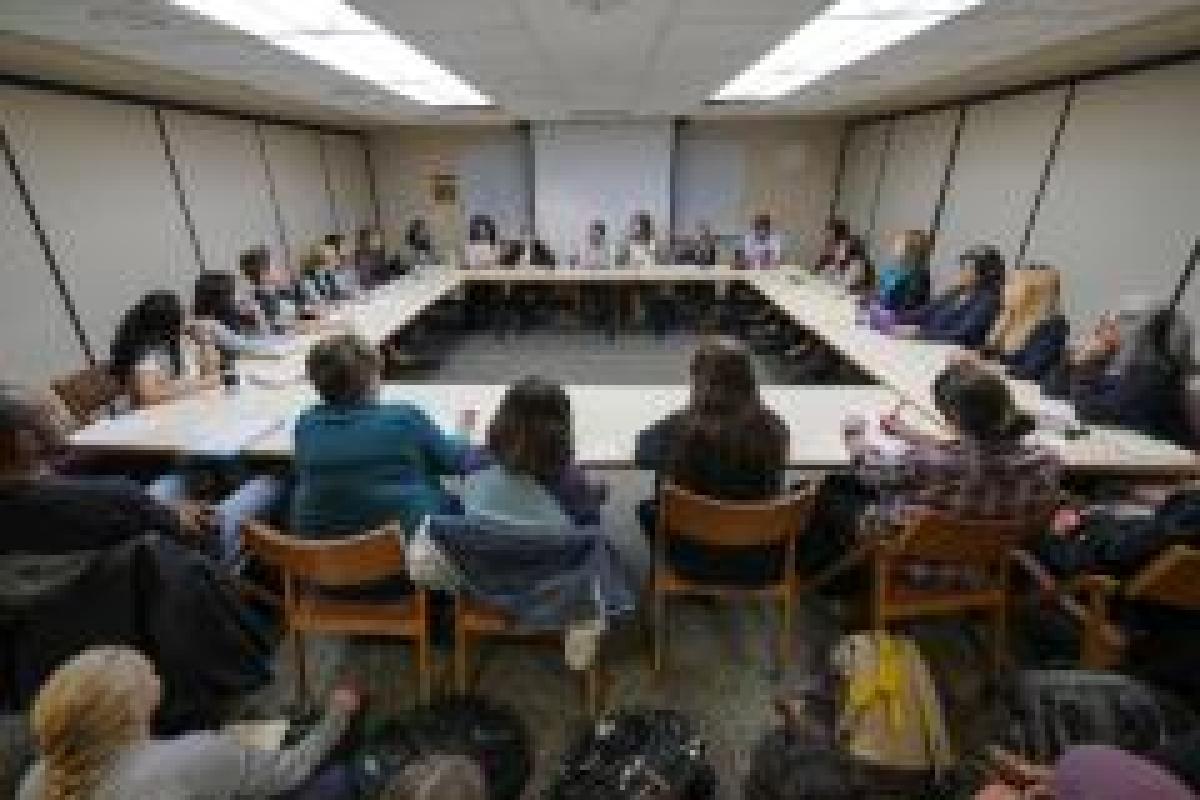Step 1: Developing an Inclusive Hiring Proposal
The purpose of this step is to ensure that the hiring proposal is in line with the unit's commitment to inclusivity, diversity, and equity.
An inclusive and equitable faculty-hiring process begins with the precise nature of the position being filled. What tasks will the new faculty member perform? What classes will the new faculty member teach? What areas of topical knowledge will be most valued by the hiring committee and most integral to success in the position? How will the position contribute to the broader project of fostering inclusivity within the unit? Answers to these questions will affect the degree to which the new position welcomes and appeals to applicants who are members of underrepresented groups.
The Environmental Studies program is committed to facilitating interdisciplinary collaboration in environment and sustainability. Key to this objective is the program's ongoing effort to form meaningful connections with communities beyond the university. In addition, ENVS course offerings and research initiatives bridge academic divisions between the social sciences, natural sciences, and humanities. Program affiliates responsible for creating hiring proposals should consider how the program's emphases on applied research and interdisciplinarity lend themselves to the creation of inclusive and equitable faculty positions.
With these questions in mind, hiring authorities should consider the following when designing the hiring proposal:
- Does the proposed position reflect the unit's commitment to inclusive excellence?
- Will the proposed position and its responsibilities likely attract underrepresented candidates?
- Are there ways to make the proposed position more likely to generate a diverse applicant pool?
- Would this position be as effective in advancing inclusive excellence as another proposed position?
Cluster Hires:
Another question the unit should raise at this early point in the hiring process is whether it will be feasible to conduct cluster hires to potentially improve conditions for the success of incoming faculty. The practice of cluster hiring entails departments working together to hire new faculty in small groups that can function as supportive cohorts. Scholars have suggested that such cohorts can contribute to the long-term job satisfaction and success of new faculty. Research suggests, however, that specific ways in which cluster hiring is implemented greatly affect outcomes.
For strategies that will help ensure that the hiring proposal reflects the unit's commitment to inclusive excellence, see Guidebook 1, located in CU Boulder's Faculty Search Process Manual.
For more on the importance of developing an inclusive hiring proposal as well as the benefits of cluster hiring, see these external resources.









